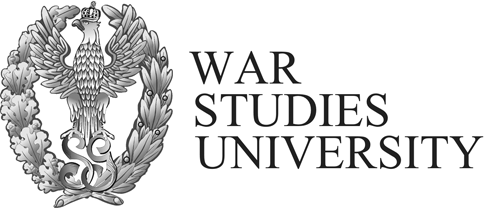Online first
Current issue
All issues
About
Aims and scope
Peer review process
Publication policy and ethics & malpractice statement
Editorial Board
Reviewers
Publisher
Guide for authors
Call for papers
Book Reviews
Special Issues Archive
New and emerging technologies in defence education, training and governance
RESEARCH PAPER
Insider attacks as one of the main threats to resolute support personnel in Afghanistan
1
War Studies University, Warsaw, Poland
Online publication date: 2016-09-23
Publication date: 2016-09-30
Security and Defence Quarterly 2016;12(3):3-18
ABSTRACT
From July 2015, the International Security Assistance Force (ISAF) moved into the Resolute
Support Mission (RSM) and started acting in the supporting role. From that time, one of the most
important Security Force Assistance tasks has been maintaining and developing relationships
with its counterparts in the Afghan Security Institutions (ASI) and Afghan National Defence
Security Forces (ANDSF). Being aware of the importance of those connections, the enemies of
Afghan society have attempted a tactic named Insider Attack (IA).
Insider Attack is not a new means of tactic. In the 19th and 20th centuries, Britain and the Soviet Union were victim to insider attacks. Insider attacks have a significant strategic impact on the campaign, as they erode the relationship between the Afghan National Defence Security Forces and Coalition Forces.
Insider attacks occur for numerous reasons, including personal grievances, insurgent influences, psychological distress, and ideological motivations. More than half of the attackers have insurgent ties. NATO utilises Target Focused Analysis & Neutralisation and Counter Intelligence Support Teams to screen, vet, and interview persons of interest, as well as collect, analyse, and exploit biometric data, documents, and media. Other measures implemented to mitigate insider threats are the threat Awareness and Reporting Programme (TARP) and the Terrorism Espionage and Sedition briefing to RSM personnel.
Incorporating appropriate lessons learned from the British, Russian and ISAF experience into RSM training and operations will have a positive impact on responding to Insider Attacks while reducing their frequency across the Combined Joint Operational Area - Afghanistan.
It is clear that the common approach to defeating Insider Threats must be holistic and each activity should be conducted according to equal principles.
The conceptual framework for countering Insider Threats has five functions: prepare, deter, detect, respond, recover and exploit.
This conceptual framework underpins the common approach and guides of counter - measures. While skills and drills are important, combatting Insider Threats is first and foremost about mindset and therefore it needs to be command-led. If proper preparation makes Coalition Forces members culturally adaptive, develops effective systems and procedures, and hones military skills and Tactics, Techniques, and Procedures, NATO will be able succeed in the Resolute Support Mission.
Insider Attack is not a new means of tactic. In the 19th and 20th centuries, Britain and the Soviet Union were victim to insider attacks. Insider attacks have a significant strategic impact on the campaign, as they erode the relationship between the Afghan National Defence Security Forces and Coalition Forces.
Insider attacks occur for numerous reasons, including personal grievances, insurgent influences, psychological distress, and ideological motivations. More than half of the attackers have insurgent ties. NATO utilises Target Focused Analysis & Neutralisation and Counter Intelligence Support Teams to screen, vet, and interview persons of interest, as well as collect, analyse, and exploit biometric data, documents, and media. Other measures implemented to mitigate insider threats are the threat Awareness and Reporting Programme (TARP) and the Terrorism Espionage and Sedition briefing to RSM personnel.
Incorporating appropriate lessons learned from the British, Russian and ISAF experience into RSM training and operations will have a positive impact on responding to Insider Attacks while reducing their frequency across the Combined Joint Operational Area - Afghanistan.
It is clear that the common approach to defeating Insider Threats must be holistic and each activity should be conducted according to equal principles.
The conceptual framework for countering Insider Threats has five functions: prepare, deter, detect, respond, recover and exploit.
This conceptual framework underpins the common approach and guides of counter - measures. While skills and drills are important, combatting Insider Threats is first and foremost about mindset and therefore it needs to be command-led. If proper preparation makes Coalition Forces members culturally adaptive, develops effective systems and procedures, and hones military skills and Tactics, Techniques, and Procedures, NATO will be able succeed in the Resolute Support Mission.
REFERENCES (3)
1.
Afghan National Defense and Security Forces (ANDSF), there are approximately 173,000 soldiers, airmen, and Ministry of Defence (MoD) civilians serving in the Army; approximately 154,000 policemen and civilians serving in the Ministry of Interior (MoI); and more than 28,000 MoI Afghan Local Police (ALP) securing villages across Afghanistan, http://www.rs.nato.int/article...- operational-update.html (2016.07.24).
2.
Resolute Support Mission (RSM) is a key component to the international community’s engagement in Afghanistan, assisting Afghan authorities in providing security and stability, while creating the conditions for reconstruction and development. NATO-led mission to train, advise and assist the Afghan security forces and institutions. The mission was launched in 2015.
3.
Combined Team (CT) includes both Afghan National Security Forces and Resolute Support Coalition Forces.
CITATIONS (1):
1.
Improvimg the Method of Developing a Logic-Probabilistic Model of an Internal Violator
I.A. Pilkevych, O.S. Boychenko, Humeniuk
Èlektronnoe modelirovanie
I.A. Pilkevych, O.S. Boychenko, Humeniuk
Èlektronnoe modelirovanie
We process personal data collected when visiting the website. The function of obtaining information about users and their behavior is carried out by voluntarily entered information in forms and saving cookies in end devices. Data, including cookies, are used to provide services, improve the user experience and to analyze the traffic in accordance with the Privacy policy. Data are also collected and processed by Google Analytics tool (more).
You can change cookies settings in your browser. Restricted use of cookies in the browser configuration may affect some functionalities of the website.
You can change cookies settings in your browser. Restricted use of cookies in the browser configuration may affect some functionalities of the website.




